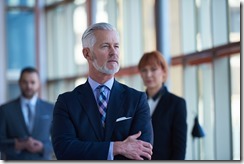
Typical Workplace Behaviors Tell Us About Culture
McDonald’s has a typical hamburger. Not a great deal different from Burger King, Wendy’s, or Carl’s Jr. Similar things tell us about what is typical. Are there typical workplace behaviors?
You bet.
In some communities the typical workplace behavior is far different from others. Pay scales may be different, opportunities are different, and the talent pool, well, it’s different.
In all cases we identify what is typical. We look at the norms, the behaviors and the values and beliefs. Once spotted, we label them, typical.
Typical for Culture?
Many organizational cultures talk about competition, efficiency, and quality. Some embrace sports teams, political currents, or even religious pathways. It may not be typical, but it is typical for those organizations.
Setting aside any legal aspects, the people are at free-will to determine what culture looks like. Management always has expectations, are they good role models?
Certainly, there are always outliers. There are the extremes. Extreme complacency, revolt, or even fast-trackers. Yet, the masses seem to make up the true definition.
Hard chargers often don’t like average. Those on the victim side of the scale don’t really high-performers. Every culture has a definition though.
How would you define yours?
Typical Workplace Behaviors
When you know who your organization really is, then it is much easier to define the customer. It is better for focus, commitment, and overcoming adversity.
Being on the same page, and, all in it together, takes on a more intense meaning in practice.
You should ask yourself, “What am I role modeling?”
Your brand depends on it.
So do your customers.
-DEG
Dennis E. Gilbert is a business consultant, speaker (CSPTM), and culture expert. He is a five-time author and the founder of Appreciative Strategies, LLC. His business focuses on positive human performance improvement solutions through Appreciative Strategies®. Reach him through his website at Dennis-Gilbert.com or by calling +1 646.546.5553.










